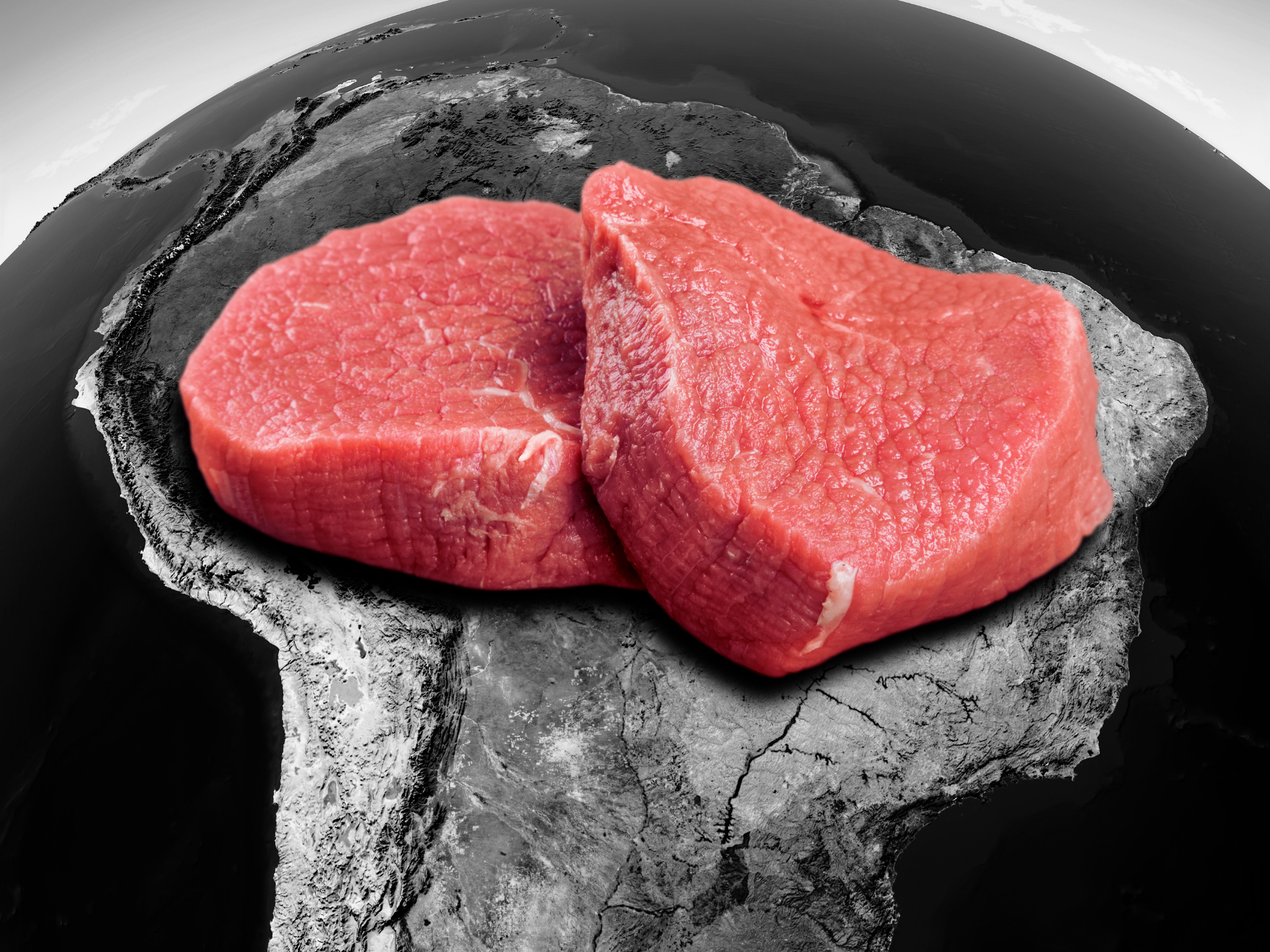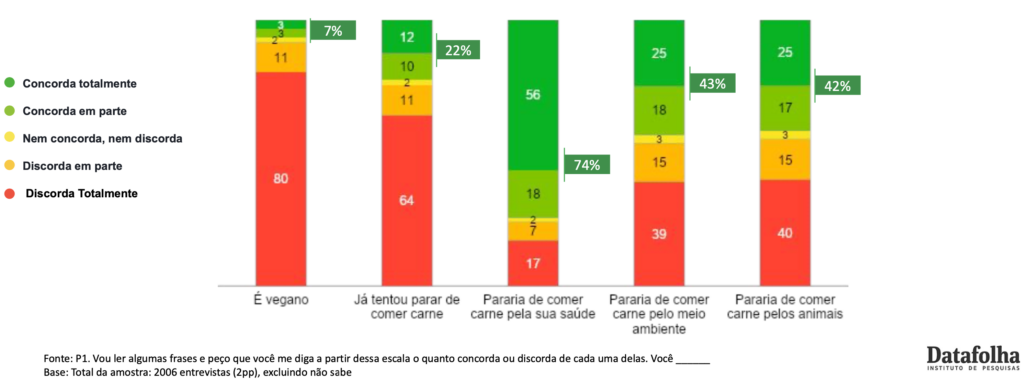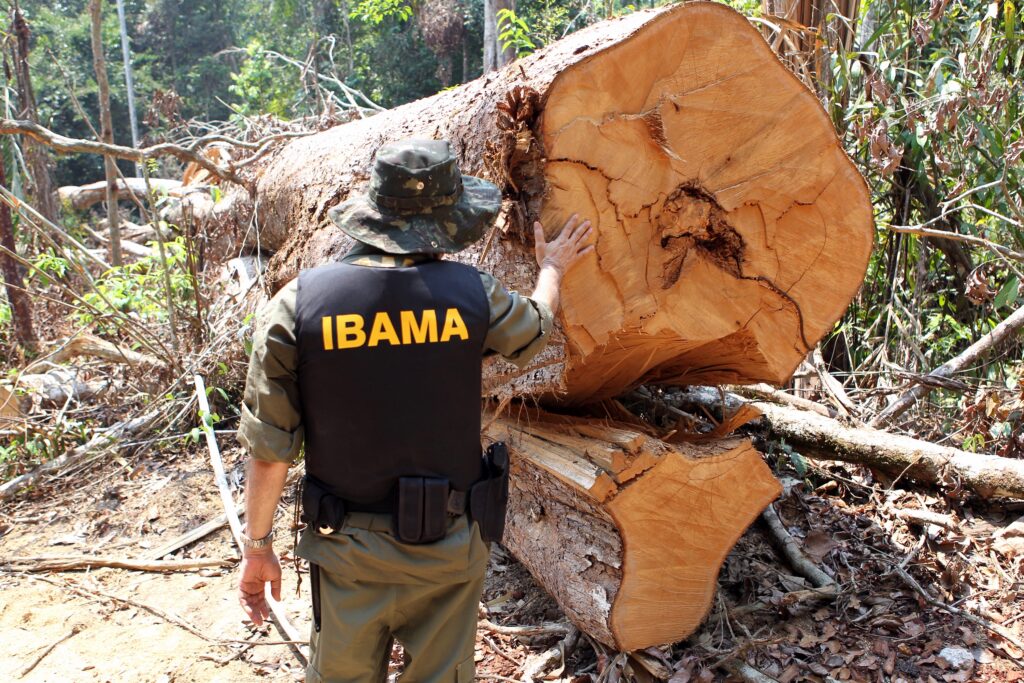
5 Mins Read
Home to some of the world’s largest meat companies, COP30 host Brazil’s beef industry is emitting more than twice the greenhouse gas limit outlined by the Paris Agreement.
As it prepares to host the annual UN climate summit later this year, one of Brazil’s economic pillars is under the environmental spotlight more than ever before.
The country’s beef industry is notorious for being heavily emissions-intensive, partly thanks to deforestation and land clearing for cattle farming. Estimates suggest that three-quarters of Brazil’s greenhouse gas emissions come from food production, and of this, 78% is directly from beef.
As part of its nationally determined contribution (NDC) under the Paris Agreement – in which nations outline plans to lower emissions and keep temperatures from exceeding 1.5°C above preindustrial levels – Brazil aims to drastically cut emissions by 43% by the end of the decade (from 2005 levels). Last November, the NDC was updated to target a 59-67% reduction by 2035.
A new study has found that the current practices of Brazil’s beef industry far exceed the greenhouse gas limits set by the Paris Agreement and its original NDC, putting the industry into sharp focus ahead of COP30 in Belém, when all national climate goals will be reviewed.
Per capita beef consumption needs to be slashed by up to 94%

Published in the Environmental Science and Pollution Research journal, the research found that Brazil’s beef industry could be emitting 0.42 to 0.63 gigatonnes of CO2e by 2030. In contrast, meeting its NDC target would require limiting these missions to 0.26 gigatonnes of CO2e.
“We know how important the beef sector is not only for the economy, but also for the Brazilian menu,” said lead author Mariana Vieira da Costa, from the Federal University of São Paulo.
“Our goal is not to say, produce or eat less meat, but to start a discussion about the current form of production, which is linked to deforestation [and] high emissions… without adopting sustainable techniques. That’s not the way to achieve our climate targets,” she added.
In addition to accounting for greenhouse gas emissions, the authors calculated the social cost of carbon, which quantifies the financial consequences of emissions on society and serves as a reference for climate policies. It represents the economic costs of emitting one tonne of CO2 on both the environment and human health, incorporating impacts like agriculture losses and damage from extreme weather.
Costa and her colleagues found that if Brazil’s beef industry achieves its NDC targets, it could lead to potential cost savings between $19B and $43B.
They measured how the required shits in consumption patterns. In 2023, Brazil set an export record for beef, selling 2.29 million tonnes worth $10.6B. The scientists factored in the importance of beef exports to the national economy to calculate how much would be available for domestic consumption if production is reduced to meet the emissions limit by 2030.
They found that annual beef intake would need to come down to 2-10kg per person. As of 2022, per capita consumption of beef was 35kg in Brazil, so to meet its climate targets, the study estimates Brazilians would need to eat as much as 94% less of it.
Fortunately, it’s not like they’re averse to cutting back on meat. According to the Good Food Institute, 36% of Brazilians ate less red meat between 2023 and 2024, mainly due to health and price concerns. In fact, a recent survey found that potential health issues could push 74% of them to reduce or eliminate meat from their diets. At the same time, retail sales of plant-based meat and seafood increased by 38% in 2023, reaching $226M.

Livestock in spotlight ahead of COP30
Between 1985 and 2022, the amount of area available for agriculture in Brazil has grown by 50%, making up a third of the national territory. Much of this expansion (64%) was due to deforestation for pasture, mostly in the Amazon, a biome that is close to a tipping point.
The country is the world’s largest beef exporter and second-largest meat producer. And yet, 80% of all beef produced here is consumed domestically, accounting for 12% of global beef intake. It’s also home to giants like Minerva, Marfrig, and JBS – the latter has been in the headlines recently, after receiving a long-delayed and heavily criticised approval for its US IPO.
“Our findings show that it’s necessary to adopt practices in the production chain that reduce emissions,” said Costa. Without significant emission cuts, the increase in global temperatures would lead to additional economic impacts, including reduced agriculture production, more forest fires, and greater health detriments (including death).
The scientists called for synergy between research and rural producers to promote more efficient, low-emission production practices, and highlighted the role of the federal government in integrating research and technology adoption by farmers and ranchers.
The government has established a Plan for Adaptation and Low Carbon Emissions in Agriculture, which provides continuity to sectoral policy to help the farming industry combat climate change between 2020 and 2030, though its adoption remains low.

This strategy seeks to diversify financial sources and instruments, with Costa suggesting that incentives like tax exemptions and carbon credits could help stimulate large-scale shifts, although any carbon credit scheme would need to be rigorously verified, as these have a history of being mostly ineffective.
Last year, a federal court in Brazil ordered a cattle rancher to pay a $50M fine for destroying parts of the Amazon rainforest, and ordered him to restore the land he cleared. It’s reflective of the government’s shift in climate policy after Jair Bolsonaro’s reign saw a 60% increase in Amazon deforestation. Under President Luiz Inácio Lula da Silva, the country had updated its goals and unveiled plans to eliminate deforestation from the Amazon by 2030.
All this comes ahead of the COP summit, which has faced criticism in recent years for being hosted by oil countries and giving unfettered access to fossil fuel and Big Meat lobbyists. This year, the UN Food and Agriculture Organization (FAO) is set to unveil its finalised 2050 Roadmap to reduce food system emissions, but experts have “grave concerns” about whether it plans to use analysis from its controversial COP28 report to guide the plan.
The post Brazil Beef Intake Must Reduce by Up to 94% to Meet Emissions Target, Says Study appeared first on Green Queen.